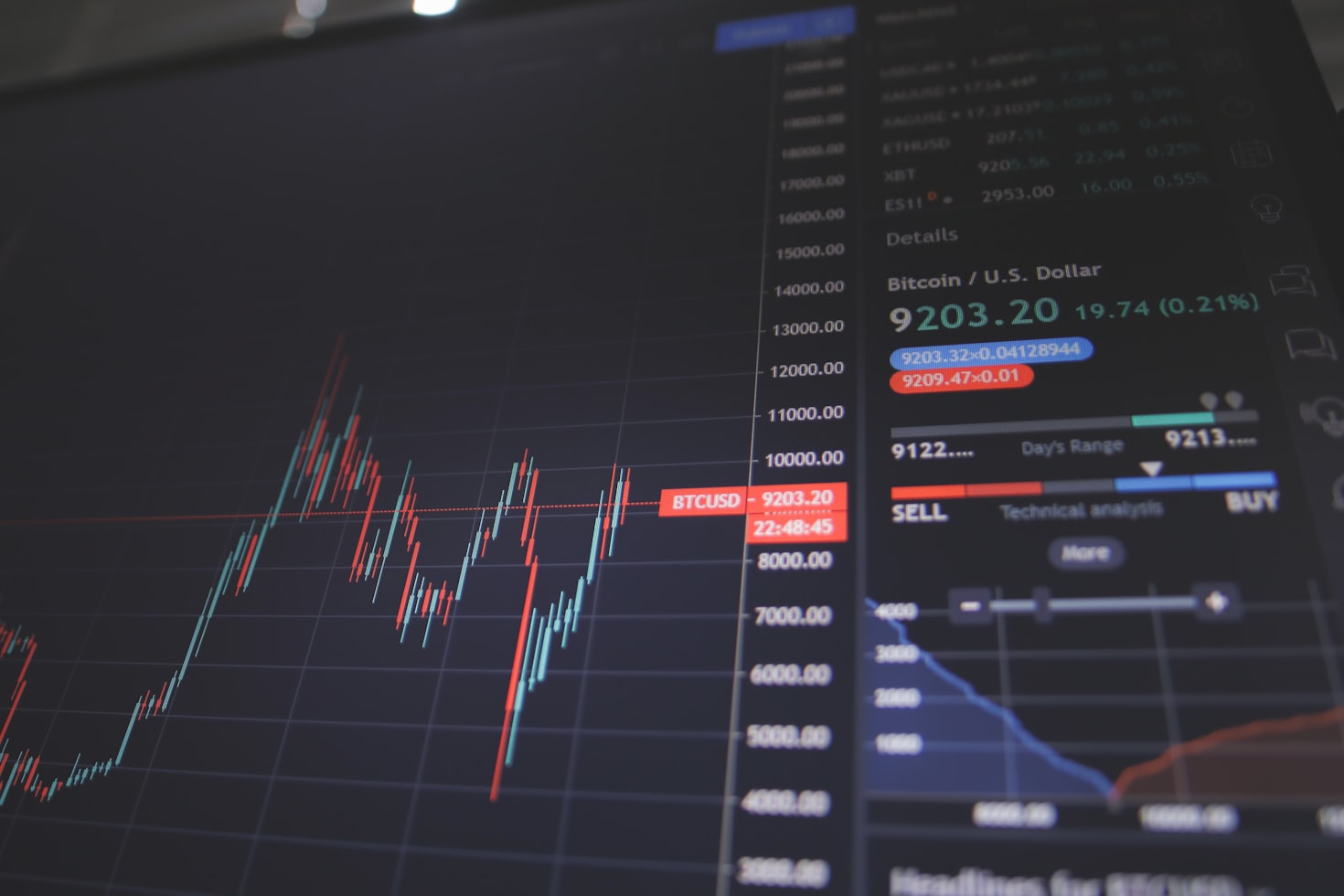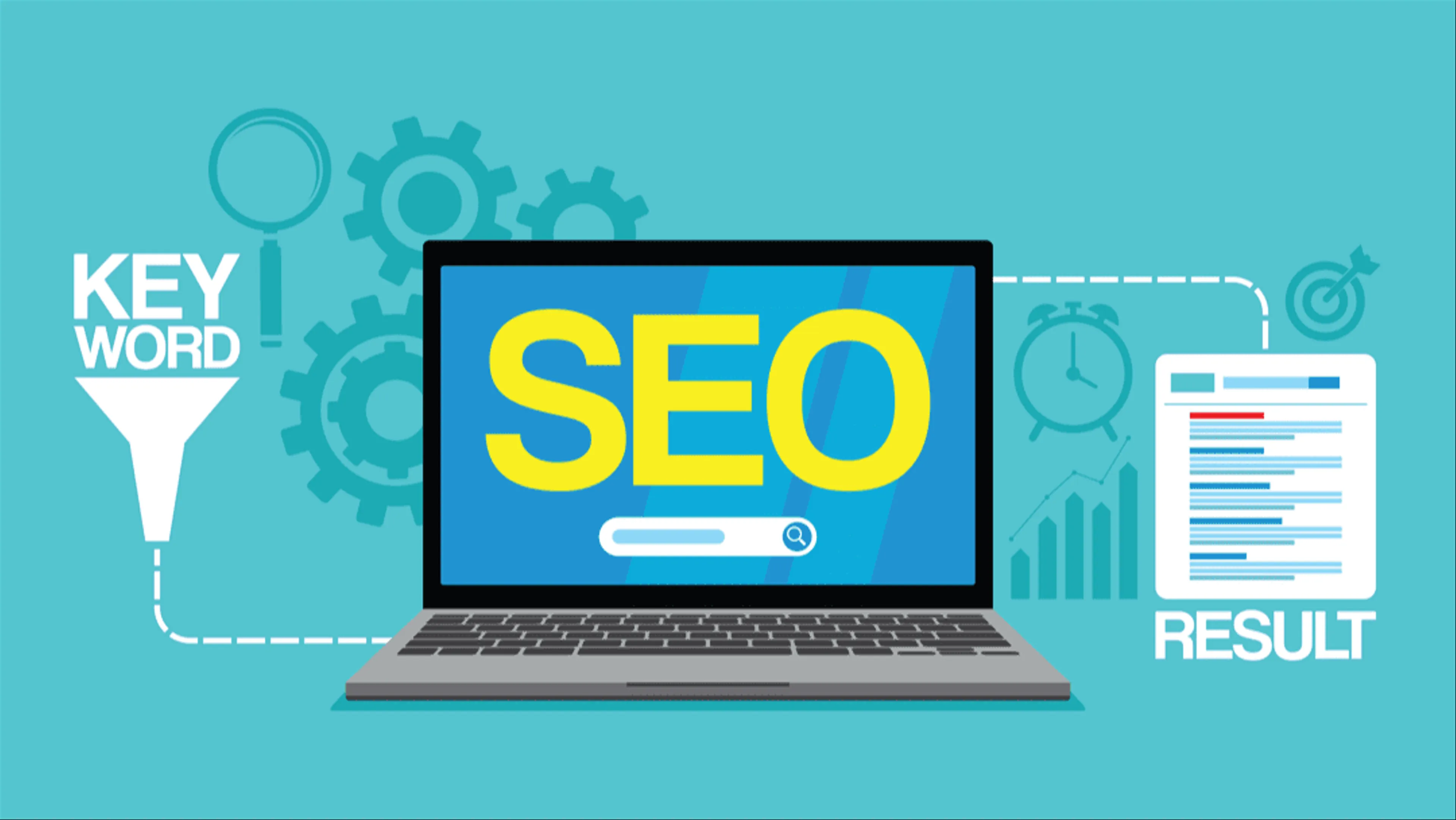Off-page SEO embodies any efforts implemented outside of a website to improve its search engine rankings.
Example tactic – Finding link building prospects
Backlinks are one of the most important ranking factors (more on this later). You can earn them organically, and you can also “build” them.
There are many link building tactics out there. One of them is looking for linking patterns among your competition so that you can get links from the same websites. For that, you will need a backlink checking tool.
Since links from new websites are likely to move the ranking needle the most (i.e., sites that don’t link to you yet), the best way to see linking patterns is to find websites that link to your competitors but not to you. You can do that easily with Ahrefs’ Link Intersect tool.
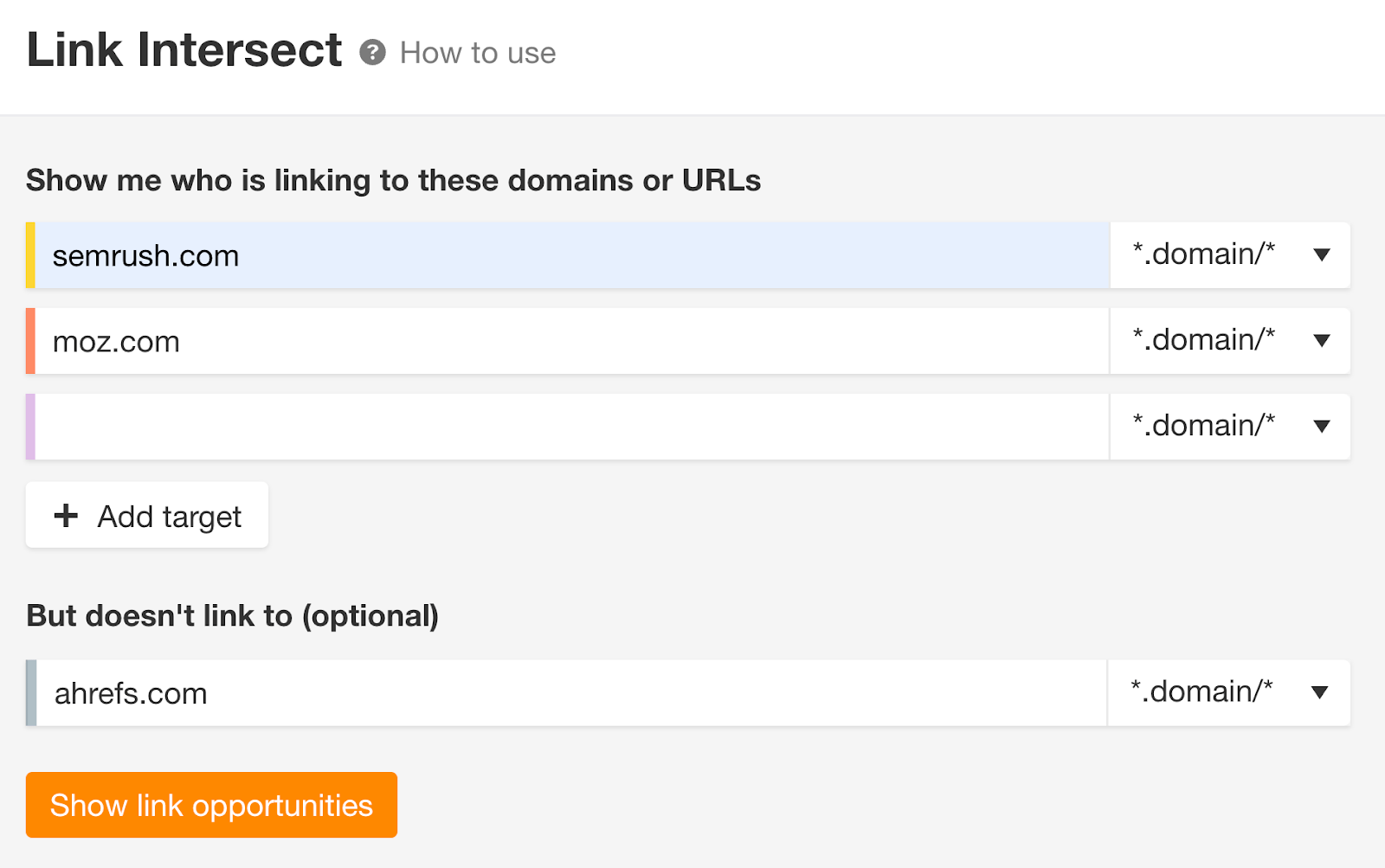
Step 1. Plug in URLs you want to compare.
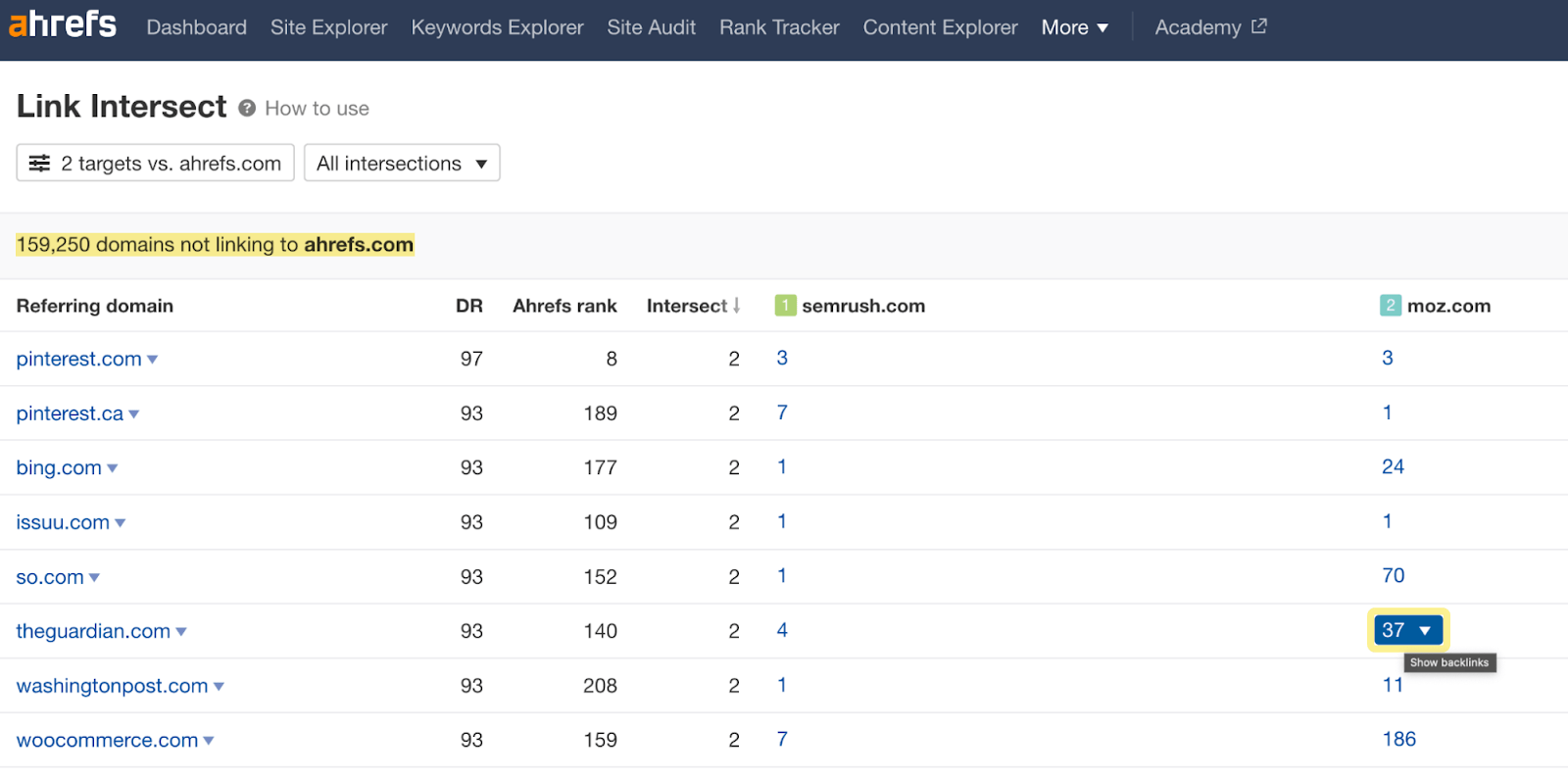
Step 2. Browse through domains in the results. Click on the number of backlinks to pages with links to your competitors.
Why are on-page SEO and off-page SEO important?
On-page SEO and off-page SEO are basically two sides of the same coin. SEO is most effective when practiced with both because Google uses ranking factors that occur on your pages and outside of them.
Depending on your needs, you can sometimes focus more on one of those SEO types. But you probably shouldn’t focus on only one of them all of the time.
What factors impact on-page SEO?
In this section, I will cover some of the most important things you should look after to rank higher on the SERPs (search engine results pages) and attract more clicks to your content.
Note: I’ll talk about known ranking factors and factors that can increase your SERP visibility and, consequently, attract more site visitors.
See On-Page SEO: The Beginner’s Guide for more about on-page SEO.
Search intent
Search intent refers to the reason behind the search. It’s one of the strongest ranking factors.
Utilizing search intent in SEO is about discovering what searchers want to get when they plug in a search query and then providing that information.
Search intent is arguably the most important factor for on-page SEO. After all, providing searchers with relevant and useful information is what search engines need to do every second.
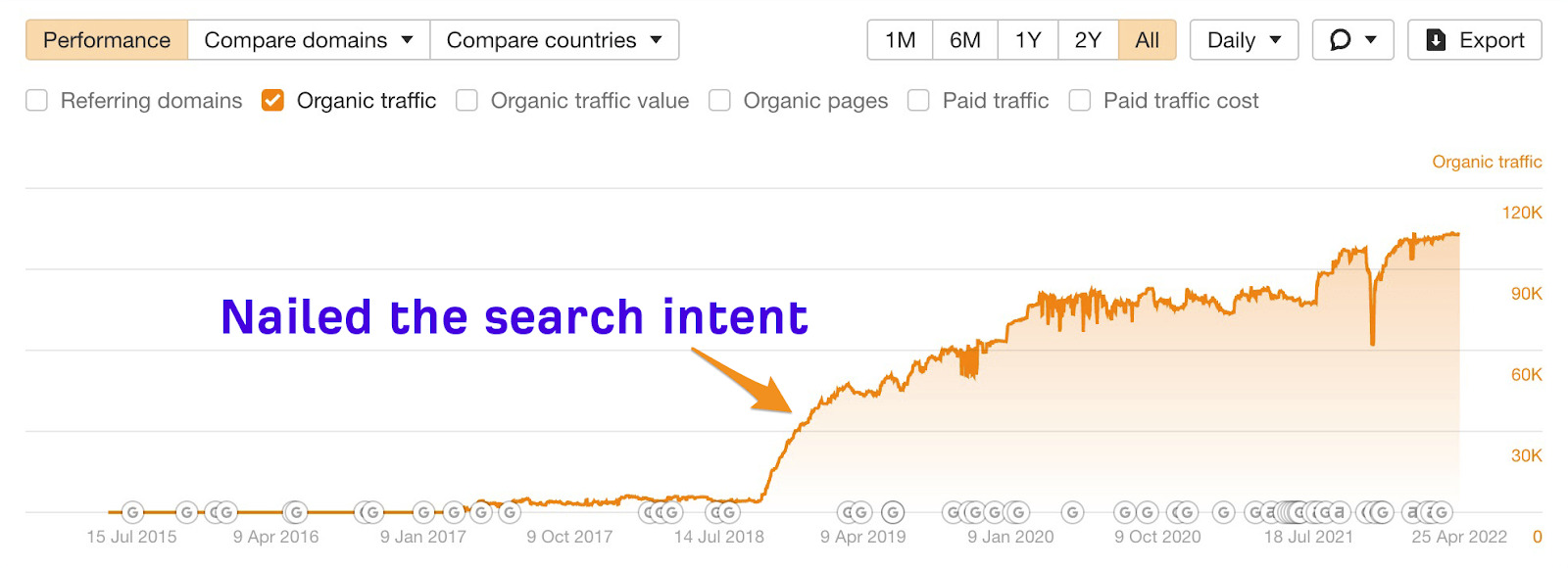
Organic traffic to one of our pages before matching search intent and after.
Optimizing your content for search intent comes down to looking at the search result pages for a particular query and identifying the three Cs of search intent:
- Content type – What is the dominating type of content? Is it a blog post, product page, video, or something else?
- Content format – Some common formats include how-to guides, list posts, reviews, comparisons, etc.
- Content angle – The unique selling point of the content piece, e.g., “best,” “cheapest,” and “for beginners.”
Once you identify the three Cs of search intent, you should have a pretty good idea of what type of content Google “recommends” to its users for particular search queries.
Recommended reading: Searcher Intent: The Overlooked ‘Ranking Factor’ You Should Be Optimizing For
